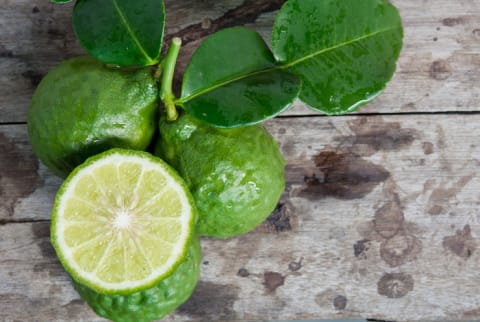Advertisement


Nature holds many secrets for health. However, Western medicine often takes a "prescription pill for every ill" approach to chronic disease. The root causes of illness — which can include lifestyle, genetics, infections and environmental toxins — are often passed over.
In my integrative cardiology training, I learned to appreciate the potency of certain herbs and supplements. It's not all about making “expensive urine,” as some critics claim. Two plant-based compounds that have a proven track record in my clinic for reversing illness are not well known, but are worth sharing.
1. Berberine
Berberine is an alkaloid chemical found in goldenseal, Oregon grapes, Chinese goldthread and barberry plants. It's been used in India and China as a therapy for a variety of maladies. Berberine may activate the same pathway as some prescription drugs like metformin, the AMPK system, and has benefits that may include:
- Maintenance of normal blood sugar levels
- Maintenance of normal cholesterol levels
- Reduced inflammation
- Antioxidant properties
- Antimicrobial activity favoring a healthy microbiome
But lots of herbs have claims attached to them — does berberine actually work? In a study of patients unable or unwilling to take statins, berberine was compared to the prescription cholesterol-lowering medication ezetimibe. In the 228 subjects studied, berberine lowered LDL cholesterol by 31%, more than that seen with ezetimibe. Using the two compounds together was even more effective, lowering LDL cholesterol by an impressive 37%.
In an article reviewing the effects of berberine on type 2 diabetes, reductions in measures of blood sugar, insulin secretion and blood lipids were all identified. In another review of the actions of berberine on blood lipids, the compound was shown to lower total and LDL cholesterol while raising HDL cholesterol.
Finally, berberine was studied in 156 patients with congestive heart failure due to a weak heart muscle, a very serious disorder. The patients getting berberine had an improvement in heart strength and walking time and fewer deaths were seen during two years of follow-up. Not bad for an herb.
2. Bergamot
Bergamot is a plant that looks like a lemon and grows in a region of Southern Italy called Calabria. Many of you are familiar with bergamot as an oil added to tea or perfume. The fruit itself has a unique combination of flavonoid chemicals, like naringin, and other compounds that block the same enzyme statin medications block. Like berberine, bergamot has been shown to lower blood sugar and blood lipids, lower inflammation, improve blood vessel activity, and activate the AMPK system.
Does bergamot work in patients? My answer is yes, and the science says yes, too. In a recent trial in 77 patients with high cholesterol, subjects were treated with a statin medication alone or combined with bergamot. The combination therapy produced the lowest LDL cholesterol and the highest HDL cholesterol. In addition, measures of damage to blood vessels by oxidation were the lowest with when bergamot was added. In other studies, the beneficial effects of bergamot on blood sugar levels and body weight have been described.
I enjoy practicing cardiology because the “toolbox” I was taught to treat patients in medical school and beyond has expanded to emphasize personalized lifestyle medicine and nutraceuticals. We live in a society that favors sedentary lifestyles and processed foods that put all of us at risk for obesity, diabetes, elevated cholesterol and heart disease.
Since I started using these two plant-based "vitamin B’s" — berberine and bergamot — with my patients, I have seen many people experience better health. My hope is that you know someone who might benefit from these also.

Dr. Joel Kahn is the founder of the Kahn Center for Cardiac Longevity. He is a summa cum laude graduate of the University of Michigan School of Medicine and is a professor of medicine at Wayne State University School of Medicine. He is owner of GreenSpace Cafe in Ferndale, Michigan. His books, The Whole Heart Solution, Dead Execs Don't Get Bonuses, and Vegan Sex are all available for sale now.
More from the author:
Functional Nutrition Training
Check out Functional Nutrition Coaching
A cutting-edge nutrition deep dive taught by 20+ top health & wellness experts
Learn moreMore from the author:
Functional Nutrition Training
Check out Functional Nutrition Coaching
A cutting-edge nutrition deep dive taught by 20+ top health & wellness experts
Learn more
Dr. Joel Kahn is the founder of the Kahn Center for Cardiac Longevity. He is a summa cum laude graduate of the University of Michigan School of Medicine and is a professor of medicine at Wayne State University School of Medicine. He is owner of GreenSpace Cafe in Ferndale, Michigan. His books, The Whole Heart Solution, Dead Execs Don't Get Bonuses, and Vegan Sex are all available for sale now.